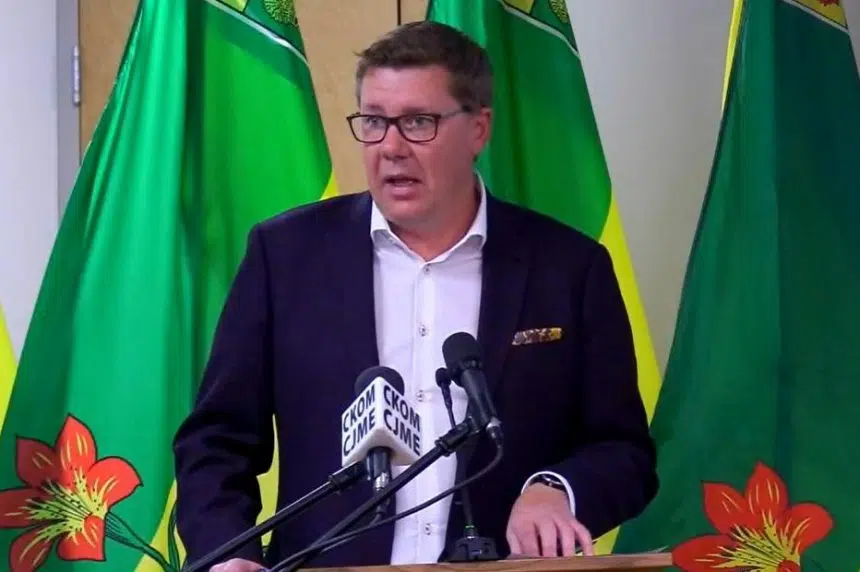Premier Scott Moe says there wasn’t an internal trigger that forced Saskatchewan to send six ICU patients to Ontario this week.
There just simply aren’t enough available beds in Saskatchewan hospitals.
Moe said the province was hoping to increase ICU capacity to 175 beds this fall, but managed to reach 135 before nearly all beds were occupied early this week.
“It’s not about specifically the ICU patients that have COVID, it’s about the overall capacity that we have in ICU beds,” Moe said on Gormley on Tuesday.
On Monday, Saskatchewan Public Safety Agency president Marlo Pritchard said there were 124 patients in Saskatchewan ICUs — 85 COVID patients and 39 non-COVID patients.
The main focus of government is to increase ICU capacity, Moe said, noting a lack of human resources is a major hurdle in accomplishing that goal. The province has asked the federal government for some assistance in that area.
“A thousand people arriving, if they aren’t of the correct disciplines, really aren’t going to be able to push the ICU capacity up here in Saskatchewan,” Moe said.
Critical care nurses, perfusionists, respiratory therapists, critical care or intensive care physicians are some of the specialty staff the province has requested from the federal government.
Many of those professionals are in high demand across the continent, Moe said, but he’s confident the military and the Red Cross would be able to accommodate the province’s request.
“We do have to be realistic on the numbers. We aren’t talking (about) the addition of 15, 20 or 25 ICU beds. In Alberta, I think it was less than five. We’re probably looking at something similar here in Saskatchewan,” Moe said.
When asked if he regretted not requesting help from Ottawa earlier on, Moe mentioned talking to “both sides” every day, highlighting the dropping cases and lowering hospitalizations over the last 10 days.
Moe said some 250 health-care services in Saskatchewan are being disrupted by COVID-19, and all resources are being poured into increasing ICU capacity.
“That’s where the pinch point is,” he said.
The province isn’t considering using further health-care measures, according to Moe. He instead said additional tools like rapid tests, “early intervention treatments,” children aged five to 11 becoming vaccine eligible and non-mRNA vaccines for the hesitant population as the latest ways to combat COVID case numbers.
“The tools that we have in the weeks ahead are different than the tools we’ve had up until this point,” Moe said.
“We’re going to do everything we can to make them available to Saskatchewan people, and ultimately reduce the pressure on our health-care system.”







